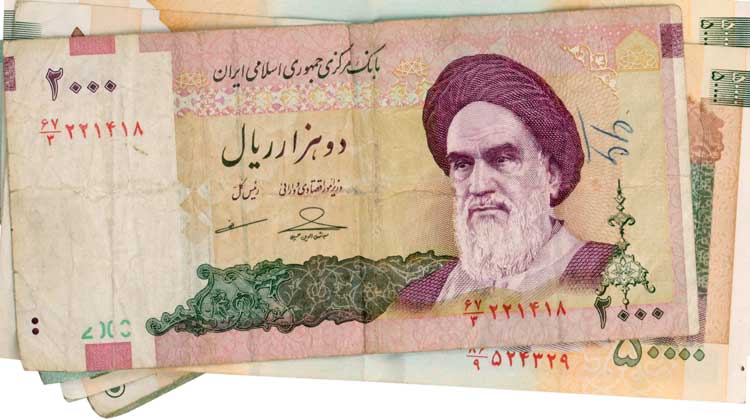
Protests that began Dec. 28 continue in Iran behind a murky flow of information emerging from the country. The death toll reportedly is about 22, but a confirmed total isn’t known. Iran’s Islamic Revolutionary Guard Corps claimed Sunday to have suppressed uprisings, but The Wall Street Journal reported that calls for Sunday protests continued to emerge from social media. In another twist to the unfolding story, reports from Iran on Sunday indicate that former Iranian President Mahmoud Ahmadinejad was arrested for inciting protesters.
Since the protests began, the Iranian regime has worked to suppress social media throughout the country and get its arms around this recent movement. Gathering consistent and verifiable information remains difficult, but a picture of the discontent is taking shape.
Alireza Nader, senior international/defense researcher for RAND Corporation, told Homeland411, that Iranians are really angry.
“I think if you look outside of Tehran, there are tens of millions of Iranians barely struggling to get by, and the Islamic Republic is going to have a major challenge in governing a country in which the vast portion of its citizens … does not accept its legitimacy,” Nader said.
The regime faced protests in 2009—The Green Movement—but these were mainly in Tehran and larger cities to protest what they saw was a fraudulent presidential election.
Today’s protests can be characterized as a bit more organic. They originated in the northeastern Iran city of Mashhad, the country’s second largest city, with a population of about 3 million, and then spread to smaller cities across the country.
“I think this was really an anti-regime uprising, because we saw Iranians attack Ayatollah Ali Kamenei, the supreme leader,” Nader said. “They tore down his poster and images of him all over Iran; they attacked the security forces; they attacked government offices; they burned banks; they burned religious centers associated with Ayatollah Khamenei, and this happened all over Iran.”
He noted that the population has every right to be angry, because they see the potential wealth of the country alongside high poverty rates, rising prices, and unemployment.
Speaking to the United Nations on Friday, U.S. Ambassador Nikki Haley noted that the uprising had impacted more than 79 locations throughout the country.
“It is a powerful exhibition of brave people who have become so fed up with their oppressive government that they’re willing to risk their lives in protest,” she said. “The world should applaud their courage.”
Haley targeted the regime’s neglect of the public’s well-being in exchange for supporting proxies throughout the region, noting that the average Iranian family is 15 percent poorer than a decade ago.
“The United Nations reports that the Iranian regime spends at least $6 billion every year propping up the murderous Assad regime in Syria,” Haley said. “The Iranian regime spends millions on militias in Iraq each year; it gives millions more each year to the Houthi rebels in Yemen, including sending them ballistic missiles to fire at other countries.”
Nader said Iranians are well aware of where these funds are going. The recent publication or leak of the government’s budget didn’t help the regime either.
“In that budget subsidies were cut, and funding for the Revolutionary Guard and foundation associated with the regime were increased,” Nader said, adding that food prices had increased in recent weeks. “For us, that may not be that big of a deal, but if you’re barely getting by and you’re working class or middle class even and all of a sudden you can’t buy eggs or bread.”
Haley continued her tough talk in front of the U.N., noting the neglect of human rights by some U.N. Security Council members and the refusal to acknowledge that human rights are fundamental to individuals and not something subjectively doled out by various governments.
“Today the people of Iran are speaking to their government, and their message is undeniable: Stop the support for terrorism; stop giving billions of our money to killers and dictators; stop taking our wealth and spending it on foreign fighters and proxy wars,” Haley said. “Nothing will stop Americans for standing in solidarity with them.”
Nader said moral support from the United States is important, but he said the U.S. travel ban preventing Iranians from visiting the United States is counterproductive.
“If the Trump administration rescinds that ban, I think that will buy goodwill,” he said.
As far as the uprisings changing Iran’s foreign policy, Nader said he doesn’t see that happening immediately, but that it’s been interesting to see Iranians’ dissatisfaction with the regime.
“I think it’s going to be a bigger challenge for the regime to justify all of these activities—the training of militias in Iraq, Syria, providing Hezbollah with hundreds of millions of dollars, if not more,” he said. “Ultimately your people are the potentially greatest source of support or opposition to you, and if anybody is going to defeat the regime’s policies, it’ll be the Iranian people.”
© 2018 Homeland411